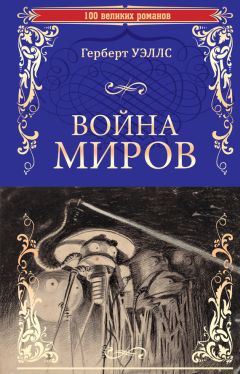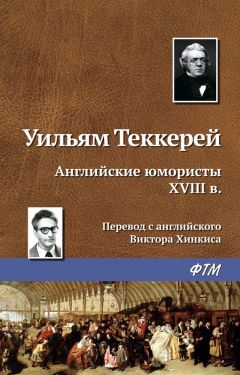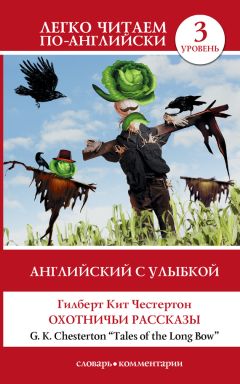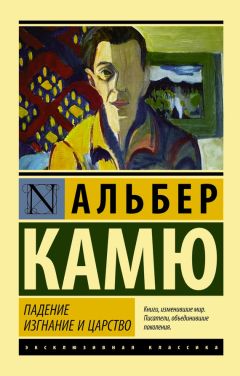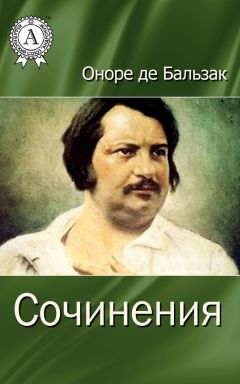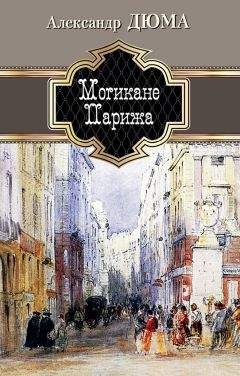Уильям Теккерей - Ярмарка тщеславия / Vanity Fair

Все авторские права соблюдены. Напишите нам, если Вы не согласны.
Описание книги "Ярмарка тщеславия / Vanity Fair"
Описание и краткое содержание "Ярмарка тщеславия / Vanity Fair" читать бесплатно онлайн.
«Ярмарка тщеславия» была и остается одним из самых популярных произведений мировой литературы. Роман без героя рассказывает историю хитроумной Бекки Шарп, готовой на многое ради богатства и положения в обществе. В центре внимания автора оказываются зло, пороки и интриги, на фоне которых особенно ярко выделяются идеалы добродетели.
Текст произведения незначительно адаптирован, снабжен грамматическим комментарием и словарем, в который вошли ВСЕ слова, содержащиеся в тексте. Благодаря этому книга подойдет для любого уровня владения английским языком.
Young Dobbin had no peace after that. The jokes were frightful, and merciless against him.
“Your father’s only a merchant, Osborne,” Dobbin said in private to the little boy who had brought down the storm upon him. At which the latter replied, “My father’s a gentleman, and keeps his carriage”; and Mr. William Dobbin retreated to a remote outhouse in the playground, where he passed a half-holiday in the bitterest sadness.
High and low, all made fun of him. And he bore everything quite patiently, and was entirely dumb and miserable.
Cuff, on the contrary, was the great chief and dandy of the Swishtail Seminary. He smuggled wine in. He fought the townboys. Ponies used to come for him to ride home on Saturdays. He could knock you off forty Latin verses in an hour. He could make French poetry. What else didn’t he know, or couldn’t he do? They said even the Doctor himself was afraid of him. Cuff, the unquestioned king of the school, ruled over his subjects, and bullied them, with splendid superiority. This one blacked his shoes: that toasted his bread, others would give him balls at cricket during summer afternoons.
“Figs” was the fellow whom he despised most. One day in private, the two young gentlemen had had a difference. Figs, alone in the schoolroom, was sitting over a home letter; when Cuff, entering, bade him go upon some message. “I can’t,” says Dobbin; “I want to finish my letter.”
“You CAN’T?” says Mr. Cuff, laying hold of that document (the poor fellow was writing to his mother, who was fond of him, although she was a grocer’s wife) “You CAN’T?” says Mr. Cuff: “I should like to know why, pray? Can’t you write to old Mother Figs tomorrow?”
“Don’t call names,” Dobbin said, getting off the bench very nervous.
“Well, sir, will you go?” crowed the cock of the school.
“Put down the letter,” Dobbin replied.
“Well, NOW will you go?” says the other.
“No, I won’t. Don’t strike, or I’ll THMASH you,” roared out Dobbin, looking so wicked, that Mr. Cuff paused, turned down his coat sleeves again, put his hands into his pockets, and walked away with a sneer. But he never meddled personally with the grocer’s boy after that.
Some time after this interview, it happened that Mr. Cuff, on a sunshiny afternoon, was in the neighbourhood of poor William Dobbin, who was lying under a tree in the playground.
Well, William Dobbin had for once forgotten the world, and was away with Sindbad the Sailor in the Valley of Diamonds, when shrill cries, as of a little fellow weeping; and looking up, he saw Cuff before him, fighting a little boy.
It was the lad who had peached upon him about the grocer’s cart; but he bore little malice,[9] not at least towards the young and small. There was everyday life before honest William; and a big boy beating a little one without cause. Up he sprang, and screamed out,
“Hold off, Cuff; don’t bully that child any more; or I’ll – ”
“Or you’ll what?” Cuff asked in amazement at this interruption. “Hold out your hand, you little beast.”
“I’ll give you the worst thrashing you ever had in your life,” Dobbin said, in reply to the first part of Cuff’s sentence; and little Osborne, gasping and in tears, looked up with wonder at seeing this amazing champion put up suddenly to defend him: while Cuff’s astonishment was scarcely less.
“After school,” says he, of course; after a pause and a look, as much as to say, “Make your will, and communicate your last wishes to your friends between this time and that.”
“As you please,” Dobbin said. “You must be my bottle holder, Osborne.”
“Well, if you like,” little Osborne replied.
When the hour of battle came, he was almost ashamed to say, “Go it, Figs”; and not a single other boy in the place cried that for the first two or three rounds of this famous combat.
Figs’s left hand made terrific play during all the rest of the combat. Cuff went down every time. At the sixth round, there were almost as many fellows shouting out, “Go it, Figs,” as there were youths exclaiming, “Go it, Cuff.” At the twelfth round the latter champion had lost all presence of mind and power of attack or defence. Figs, on the contrary, was calm. And now all the boys set up such a shout for Figs as would have made you think he had been their darling champion through the whole battle; and as absolutely brought Dr. Swishtail out of his study, curious to know the cause of the uproar.
Cuff, who had come to himself by this time, and was washing his wounds, stood up and said, “It’s my fault, sir – not Figs’ – not Dobbin’s. I was bullying a little boy; and he served me right.” By which speech he not only saved his conqueror a whipping, but got back all his ascendancy over the boys which his defeat had nearly cost him.[10]
In consequence of Dobbin’s victory, his character rose prodigiously in the estimation of all his schoolfellows, and the name of Figs became as respectable and popular a nickname as any other in use in the school. “After all, it’s not his fault that his father’s a grocer,” George Osborne said, who, though a little chap, had a very high popularity among the Swishtail youth; and his opinion was received with great applause. It was voted low to sneer at Dobbin about this accident of birth. “Old Figs” grew to be a name of kindness and endearment.
And Dobbin’s spirit rose with his altered circumstances. He made wonderful advances in scholastic learning. Dobbin was much too modest a young fellow to suppose that this happy change in all his circumstances arose from his own generous and manly disposition: he chose to attribute his good fortune to George Osborne, to whom he vowed such a love and affection as is only felt by children. He flung himself down at little Osborne’s feet, and loved him. He believed Osborne to be the possessor of every perfection, to be the handsomest, the bravest, the most active, the cleverest, the most generous of created boys. He shared his money with him.
So that Lieutenant Osborne, when coming to Russell Square on the day of the Vauxhall party, said to the ladies, “Mrs. Sedley, Ma’am, I hope you have room; I’ve asked Dobbin of ours to come and dine here, and go with us to Vauxhall. He’s almost as modest as Jos.”
That evening, when Amelia came into the drawing room as fresh as a rose – a very tall gentleman, with large hands and feet, and large ears, advanced to meet her, and made her one of the clumsiest bows. This was no other than Captain William Dobbin, of His Majesty’s Regiment of Foot, returned from yellow fever, in the West Indies.
When she held out her hand for him to shake, before he enveloped it in his own, he paused, and thought – ”Well, is it possible – are you the little maid such a short time ago? What a blooming young creature you seem!” All this he thought, before he took Amelia’s hand into his own.
Young Osborne followed presently in the same regiment. They had served in the West Indies and in Canada. Their regiment had just come home, and the attachment of Dobbin to George Osborne was as warm and generous now as it had been when the two were schoolboys. So these worthy people sat down to dinner presently. They talked about war and glory. Miss Sharp kindled with this exciting talk, but Miss Sedley trembled and grew quite faint as she heard it. Mr. Jos told several of his tiger-hunting stories, helped Rebecca to everything on the table, drank a great deal.
“He’s priming himself,” Osborne whispered to Dobbin, and at length the hour and the carriage arrived for Vauxhall.
6
The argument stands thus – Osborne, in love with Amelia, has asked an old friend to dinner and to Vauxhall – Jos Sedley is in love with Rebecca. Will he marry her? That is the great subject now in hand. Let us then step into the coach with the Russell Square party, and be off to the Gardens. There is barely room between Jos and Miss Sharp, who are on the front seat. Mr. Osborne sitting opposite, between Captain Dobbin and Amelia.
Every soul in the coach agreed that on that night Jos would propose to make Rebecca Sharp Mrs. Sedley. Amelia was quite enthusiastic for the match. Mr. Sedley was neutral. “Let Jos marry whom he likes,” he said; “it’s no affair of mine. This girl has no fortune; no more had Mrs. Sedley. She seems good-humoured and clever, and will keep him in order, perhaps.” So that everything seemed to smile upon Rebecca’s fortunes. All she wanted was the proposal.
The party was landed at the Royal Gardens in due time. As the majestic Jos stepped out of the creaking vehicle the crowd gave a cheer for the fat gentleman, who blushed and looked very big and mighty, as he walked away with Rebecca under his arm. George, of course, took charge of Amelia. She looked as happy as a rose-tree in sunshine.
Honest Dobbin contented himself by giving an arm to the shawls, and by paying at the door for the whole party. He walked very modestly behind them. About Rebecca and Jos he did not care a fig. But he thought Amelia worthy even of the brilliant George Osborne.
It is to be understood, as a matter of course, that our young people, being in parties of two and two, made the most solemn promises to keep together during the evening, and separated in ten minutes afterwards.[11]
What were the adventures of Mr. Osborne and Miss Amelia? That is a secret. But be sure of this – they were perfectly happy, and correct in their behaviour.
But when Miss Rebecca Sharp and her stout companion lost themselves in a solitary walk, they both felt that the situation was extremely tender and critical, and now or never was the moment Miss Sharp thought, to provoke that declaration which was trembling on the timid lips of Mr. Sedley.
“How I should like to see India!” said Rebecca.
“SHOULD you?” said Joseph, with a most killing tenderness; and was no doubt about to follow up by a question still more tender, when, oh, provoking! the bell rang for the fireworks.
The two couples were perfectly happy then in their box: where the most delightful and intimate conversation took place. Jos was in his glory, ordering about the waiters with great majesty. Finally, he insisted upon having a bowl of rack punch; everybody had rack punch at Vauxhall.
The young ladies did not drink it; Osborne did not like it; and the consequence was that Jos drank up the whole contents of the bowl; and there was a liveliness which at first was astonishing, and then became almost painful. George Osborne conducted the girls home in safety.
Amelia looked very ruefully at her friend, as they went up stairs, and kissed her, and went to bed without any more talking.
“He must propose to-morrow,” thought Rebecca. “He called me his soul’s darling, four times; he squeezed my hand in Amelia’s presence. He must propose tomorrow.” And so thought Amelia, too.
The next day, however, as the two young ladies sat on the sofa, pretending to work, or to write letters, or to read novels, Sambo came into the room with his usual engaging grin, with a packet under his arm, and a note on a tray. “Note from Mr. Jos, Miss,” says Sambo. How Amelia trembled as she opened it!
So it ran:
Dear Amelia, I leave town today.
Pray excuse me, if you can, to the amiable Miss Sharp. As soon as I have recovered, for my health is very much shaken, I shall go to Scotland for some months, and am
Truly yours, Jos Sedley
All was over. Amelia did not dare to look at Rebecca’s pale face and burning eyes, but she dropped the letter into her friend’s lap; and got up, and went upstairs to her room, and cried her little heart out.
It now became clear to every soul in the house, except poor Amelia, that Rebecca should take her departure, as speedily as possible. Rebecca was thinking in her heart, “It was George Osborne who prevented my marriage.” She made her preparations for departure and accepted all the kind little Amelia’s presents, after the proper degree of hesitation and reluctance.
Finally came the parting with Miss Amelia, over which picture I intend to throw a veil.
7
And now it became naturally Rebecca’s duty to make herself agreeable to her new family of Crawleys.
“I am alone in the world,” said the friendless girl. “I have nothing to look for but what my own labour can bring me; and while that little pink-faced chit Amelia has ten thousand pounds and an establishment secure, poor Rebecca (and my figure is far better than hers) has only herself and her own wits to trust to. Well, let us see if some day or the other I cannot show Miss Amelia my real superiority over her. Not that I dislike poor Amelia: who can dislike such a harmless, good-natured creature? – only it will be a fine day when I can take my place above her in the world, as why, indeed, should I not?”
With the young people her method was pretty simple. She did not pester their young brains with too much learning, but, on the contrary, let them have their own way in regard to educating themselves.
With Mr. Crawley Miss Sharp was respectful and obedient. She used to consult him on passages of French which she could not understand, though her mother was a Frenchwoman, he was kind enough to select for her books of a more serious tendency, and address to her much of his conversation.
He took Rebecca to task once or twice about the propriety of playing at backgammon with Sir Pitt.[12] But it was not only by playing at backgammon with the Baronet, that the little governess rendered herself agreeable to her employer. She found many different ways of being useful to him. She volunteered to copy many of his letters, and altered the spelling of them so as to suit the usages of the present day. She became interested in everything about the estate, to the farm, the park, the garden, and the stables; and so delightful a companion was she, that the Baronet would seldom take his after-breakfast walk without her (and the children of course). She was almost mistress of the house when Mr. Crawley was absent, but her behaviour was always exceedingly modest and affable. She was quite a different person from the haughty, shy, dissatisfied little girl whom we have known previously.
Old Miss Crawley had a snug little house in Park Lane, and, as she ate and drank a great deal too much during the season in London, she went to Harrowgate or Cheltenham for the summer. Silly, romantic Miss Crawley, always used to pay Rawdon Crawley’s, her favourite nephew, debts after his duels; and would not listen to a word that was whispered against his morality.
* * *Now let us turn our sight to Amelia. There was scarcely any point upon which the Misses Osborne, George’s sisters, and the Mesdemoiselles Dobbin agreed so well as in their estimate of her very trifling merits: and their wonder that their brothers could find any charms in her. And they treated her with such extreme kindness and patronised her, that the poor little thing was in fact perfectly dumb in their presence and as stupid as they thought her. She made efforts to like them, as in duty bound, and as sisters of her future husband.
Amelia was asking Captain Dobbin about Osborne all the time. He never hurried to visit her preferring to spend some time on games and drinking. Once, after three days of absence, Miss Amelia put on her bonnet, and actually invaded the Osborne house. “What! leave our brother to come to us?” said the young ladies. “Have you had a quarrel, Amelia? Do tell us!” No, indeed, there had been no quarrel. “Who could quarrel with him?” says she, with her eyes filled with tears. She only came over to – to see her dear friends; they had not met for so long. And this day she was so perfectly stupid and awkward, that the Misses Osborne and their governess, who stared after her as she went sadly away, wondered more than ever what George could see in poor little Amelia.
Подписывайтесь на наши страницы в социальных сетях.
Будьте в курсе последних книжных новинок, комментируйте, обсуждайте. Мы ждём Вас!
Похожие книги на "Ярмарка тщеславия / Vanity Fair"
Книги похожие на "Ярмарка тщеславия / Vanity Fair" читать онлайн или скачать бесплатно полные версии.
Мы рекомендуем Вам зарегистрироваться либо войти на сайт под своим именем.
Отзывы о "Уильям Теккерей - Ярмарка тщеславия / Vanity Fair"
Отзывы читателей о книге "Ярмарка тщеславия / Vanity Fair", комментарии и мнения людей о произведении.







